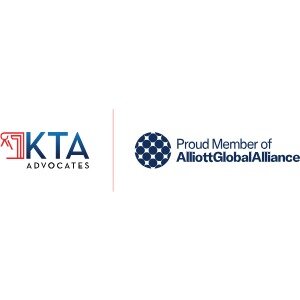Best Bankruptcy Lawyers in Uganda
Share your needs with us, get contacted by law firms.
Free. Takes 2 min.
Or refine your search by selecting a city:
List of the best lawyers in Uganda
About Bankruptcy Law in Uganda
Bankruptcy law in Uganda provides a legal framework for individuals or entities that cannot repay their debts. The laws are designed to offer relief to debtors who are overwhelmed with financial obligations and enable creditors to recover a portion of what is owed to them. Bankruptcy proceedings are governed by the Insolvency Act of 2011 and are implemented through court processes. This legal process can result in the liquidation of assets or rescheduling of debts, thereby providing a form of financial reset for the debtor.
Why You May Need a Lawyer
Engaging a lawyer is essential in several situations related to bankruptcy. Firstly, a lawyer can offer legal advice on whether declaring bankruptcy is the best option given your specific financial circumstances. Secondly, navigating bankruptcy proceedings requires understanding complex legal procedures, where a lawyer can offer necessary guidance to ensure compliance with all requisite legal obligations. Lastly, if you are a creditor seeking to recover debts through insolvency proceedings, legal assistance can help protect your interests and maximize the potential recovery of debts.
Local Laws Overview
In Uganda, the key legislation governing bankruptcy is the Insolvency Act of 2011. Key aspects include:
- Initiation of Proceedings: Bankruptcy can be initiated by debtors who acknowledge their inability to pay or by creditors through the court.
- Role of the Official Receiver: An official receiver is appointed to manage the debtor's estate and oversee the process.
- Debt Recovery: Bankruptcy aims to distribute the debtor's assets equitably among creditors.
- Bankruptcy Order: Once declared bankrupt, an individual’s financial obligations are managed according to the court's order.
- Rehabilitation and Discharge: Bankruptcy provides a pathway to financial rehabilitation, culminating in the discharge of remaining debts once conditions are met.
Frequently Asked Questions
What is bankruptcy?
Bankruptcy is a legal process through which individuals or businesses unable to pay their debts can seek relief from some or all of their obligations.
Who can file for bankruptcy in Uganda?
Both individuals and businesses can file for bankruptcy in Uganda, provided they meet specific criteria for insolvency under the Insolvency Act of 2011.
How do bankruptcy proceedings begin?
Proceedings can be initiated by the debtor voluntarily acknowledging insolvency or by creditors petitioning the court to declare the debtor bankrupt.
What happens to my assets if I declare bankruptcy?
Your assets may be liquidated to pay off creditors. However, certain essential assets might be protected depending on specific exemptions under the law.
Can I file for bankruptcy without a lawyer?
While it's not legally required to have a lawyer, it's highly advisable to obtain legal counsel to navigate the complex proceedings effectively.
How long does the bankruptcy process take?
The duration varies depending on the complexity of the case, the amount of debt, and the efficiency of court proceedings.
What debts are discharged in bankruptcy?
Most types of unsecured debt can be discharged; however, some obligations like certain taxes or student loans may not be forgiven.
How does bankruptcy affect my credit status?
Filing for bankruptcy significantly impacts your credit score, and it may take several years to rebuild creditworthiness.
What is the role of an official receiver?
The official receiver administers the assets, ensures fair distribution among creditors, and oversees adherence to bankruptcy proceedings.
Can a bankrupt individual start a business in Uganda?
An individual who has been declared bankrupt might face restrictions on managing a business unless the court lifts such limitations or grants discharge.
Additional Resources
For further assistance, individuals may consider reaching out to the following bodies:
- Uganda Registration Services Bureau (URSB): Oversees corporate registration and insolvency services.
- Insolvency Practitioners Association of Uganda (IPAU): Provides resources and guidance for insolvency processes.
- Legal Aid Clinics: Often offer free or subsidized legal advice for those who qualify.
Next Steps
If you are considering bankruptcy or need legal assistance, the following steps are recommended:
- Consult with a qualified bankruptcy attorney to explore your options and understand the implications of filing for bankruptcy.
- Gather all necessary financial documents to provide a clear overview of your debts and assets.
- Attend any preliminary consultations to discuss potential legal strategies and outcomes.
- Ensure compliance with any requirements set forth by the court or your legal counsel to facilitate a smooth process.
Lawzana helps you find the best lawyers and law firms in Uganda through a curated and pre-screened list of qualified legal professionals. Our platform offers rankings and detailed profiles of attorneys and law firms, allowing you to compare based on practice areas, including Bankruptcy, experience, and client feedback.
Each profile includes a description of the firm's areas of practice, client reviews, team members and partners, year of establishment, spoken languages, office locations, contact information, social media presence, and any published articles or resources. Most firms on our platform speak English and are experienced in both local and international legal matters.
Get a quote from top-rated law firms in Uganda — quickly, securely, and without unnecessary hassle.
Disclaimer:
The information provided on this page is for general informational purposes only and does not constitute legal advice. While we strive to ensure the accuracy and relevance of the content, legal information may change over time, and interpretations of the law can vary. You should always consult with a qualified legal professional for advice specific to your situation.
We disclaim all liability for actions taken or not taken based on the content of this page. If you believe any information is incorrect or outdated, please contact us, and we will review and update it where appropriate.
Browse bankruptcy law firms by city in Uganda
Refine your search by selecting a city.














